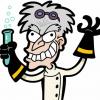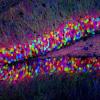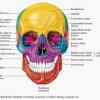
TREATING ANXIETY SAFELY & EFFECTIVELY
#571
Posted 27 February 2014 - 03:57 PM
may you please post a link to where 'theamine increases gaba
thanks.
#572
Posted 27 February 2014 - 10:07 PM
J Herb Pharmacother 2006;6(2):21-30.
The neuropharmacology of L-theanine(N-ethyl-L-glutamine): a possible neuroprotective and cognitive enhancing agent.
Nathan PJ, Lu K, Gray M, Oliver C.
Source
Behavioural Neuroscience Laboratory, Department of Physiology, Monash Center for Brain and Behaviour, Monash University, Australia. Nathan@med.monash.edu.au
Abstract
L-theanine (N-ethyl-L-glutamine) or theanine is a major amino acid uniquely found in green tea. L-theanine has been historically reported as a relaxing agent, prompting scientific research on its pharmacology. Animal neurochemistry studies suggest that L-theanine increases brain serotonin, dopamine, GABA levels and has micromolar affinities for AMPA, Kainate and NMDA receptors. In addition has been shown to exert neuroprotective effects in animal models possibly through its antagonistic effects on group 1 metabotrophic glutamate receptors.Behavioural studies in animals suggest improvement in learning and memory. Overall, L-theanine displays a neuropharmacology suggestive of a possible neuroprotective and cognitive enhancing agent and warrants further investigation in animals and humans.
PMID: 17182482
sponsored ad
#573
Posted 08 March 2014 - 02:12 PM
#574
Posted 12 March 2014 - 10:24 PM
I'd also like to note that my average consumption at its peak was "only" one cup of coffee a day, thinking this wouldn't have much of an effect on me. It also took about a month of abstinence to start noticing positive effects.
Anyway, my thanks to ScienceGuy for this thread, even though it took me a while to heed some of the information.
Edited by brokenyoga, 12 March 2014 - 10:35 PM.
#575
Posted 14 March 2014 - 05:18 PM
#576
Posted 14 March 2014 - 06:52 PM
What about the use of Neurontin (gabapentin) to treat anxiety?
That's the problem with long consolidated threads. They don't work if you need to find something in the middle somewhere. I'm sure it must have been discussed already.
#577
Posted 14 March 2014 - 07:26 PM
What about the use of Neurontin (gabapentin) to treat anxiety?
That's the problem with long consolidated threads. They don't work if you need to find something in the middle somewhere. I'm sure it must have been discussed already.
I would have thought a "search thread" function would be possible here. Do you know who can implement that? I imagine it would be relatively easy to do..
Edited by brokenyoga, 14 March 2014 - 07:29 PM.
#578
Posted 15 March 2014 - 07:42 AM
And that's good in my opinion.
#579
Posted 15 March 2014 - 08:07 PM
One mechanism I can think of that will definitely help if your theory is correct is NMDA antagonism. You should probably avoid the short acting ones such as ketamine, magnesium etc. since they further sensitize the receptors after they wear off. Since magnesium helped a little bit it indicates it is indeed related to overexcitation. Memantine is perfect in this situation, I recommend finding some ASAP. In the meantime it may be worth taking some GABA agonists, to generally subdue the overexcitation until the above solution can be implemented. Do you have any phenibut, benzodiazepines or anything similar? Try a little and see if it helps, if so continue to take enough until your symptoms subside substantially. Also, do you meditate? It may seem silly but it has been shown to increase GABA levels in the brain, inhibiting neuronal firing somewhat. If you're not proficient don't bother. Staying calm generally will also help, do some things that relax you, nothing emotionally stressful. I hope you're okay man, keep us updated...
#580
Posted 18 March 2014 - 11:32 AM
Nociceptin: Nature’s Balm for the Stressed Brain
LA JOLLA, CA — January 8, 2014 — Collaborating scientists at The Scripps Research Institute (TSRI), the National Institutes of Health (NIH) and the University of Camerino in Italy have published new findings on a system in the brain that naturally moderates the effects of stress. The findings confirm the importance of this stress-damping system, known as the nociceptin system, as a potential target for therapies against anxiety disorders and other stress-related conditions.
“We were able to demonstrate the ability of this nociceptin anti-stress system to prevent and even reverse some of the cellular effects of acute stress in an animal model,” said biologist Marisa Roberto, associate professor in TSRI’s addiction research department, known as the Committee on the Neurobiology of Addictive Disorders.
Roberto was a principal investigator for the study, which appears in the January 8, 2014 issue of the Journal of Neuroscience.
A Variety of Effects
Nociceptin, which is produced in the brain, belongs to the family of opioid neurotransmitters. But the resemblance essentially ends there. Nociceptin binds to its own specific receptors called NOP receptors and doesn’t bind well to other opioid receptors. The scientists who discovered it in the mid-1990s also noted that when nociceptin is injected into the brains of mice, it doesn’t kill pain—it makes pain worse.
The molecule was eventually named for this “nociceptive” (pain-producing) effect. However, subsequent studies demonstrated that, by activating its corresponding receptor NOP, nociceptin acted as an antiopioid and not only affected pain perception, but also blocked the rewarding properties of opioids such as morphine and heroin.
Perhaps of greatest interest, several studies in rodents have found evidence that nociceptin can act in the amygdala, a part of the brain that controls basic emotional responses, to counter the usual anxiety-producing effects of acute stress. There have been hints, too, that this activity occurs automatically as part of a natural stress-damping feedback response.
Scientists have wanted to know more about the anti-stress activity of the nociceptin/NOP system, in part because it might offer a better way to treat stress-related conditions. The latter are common in modern societies, including post-traumatic stress disorder as well as the drug-withdrawal stress that often defeats addicts’ efforts to kick the habit.
Reducing the Stress Reaction
For the new study, Roberto and her collaborators looked in more detail at the nociceptin/NOP system in the central amygdala.
First, Markus Heilig’s laboratory at the National Institute on Alcohol Abuse and Alcoholism (NIAAA), part of the NIH, measured the expression of NOP-coding genes in the central amygdala in rats. Heilig’s team found strong evidence that stress changes the activity of nociceptin/NOP in this region, indicating that the system does indeed work as a feedback mechanism to damp the effects of stress. In animals subjected to a standard laboratory stress condition, NOP gene activity rose sharply, as if to compensate for the elevated stress.
Roberto and her laboratory at TSRI then used a separate technique to measure the electrical activity of stress-sensitive neurons in the central amygdala. As expected, this activity rose when levels of the stress hormone CRF rose and started out at even higher levels in the stressed rats. But this stress-sensitive neuronal activity could be dialed down by adding nociceptin. The stress-blocking effect was especially pronounced in the restraint-stressed rats—probably due to their stress-induced increase in NOP receptors.
Finally, biologist Roberto Ciccocioppo and his laboratory at the University of Camerino conducted a set of behavioral experiments showing that injections of nociceptin specifically into the rat central amygdala powerfully reduced anxiety-like behaviors in the stressed rats, but showed no behavioral effect in non-stressed rats.
The three sets of experiments together demonstrate, said Roberto, that “stress exposure leads to an over-activation of the nociceptin/NOP system in the central amygdala, which appears to be an adaptive feedback response designed to bring the brain back towards normalcy.”
In future studies, she and her colleagues hope to determine whether this nociceptin/NOP feedback system somehow becomes dysfunctional in chronic stress conditions. “I suspect that chronic stress induces changes in amygdala neurons that can contribute to the development of some anxiety disorders,” said Roberto.
Compounds that mimic nociceptin by activating NOP receptors—but, unlike nociceptin, could be taken in pill form—are under development by pharmaceutical companies. Some of these appear to be safe and well tolerated in lab animals and may soon be ready for initial tests in human patients, Ciccocioppo said.
Other contributors to the study, “Restraint stress alters nociceptin/orphanin FQ and CRF systems in the rat central amygdala: significance for anxiety-like behaviors,” were Giordano de Guglielmo and Massimo Ubaldi of the University of Camerino; Anita Hansson, who worked in the Heilig laboratory at NIAAA during the study; Marsida Kallupi, who worked in both the Roberto laboratory at TSRI and the Ciccocioppo Laboratory at the University of Camerino during the study; and Maureen Cruz and Christopher Oleata of TSRI.
#581
Posted 08 April 2014 - 06:34 PM
The following is a list (in no particular order) of ANXIOLYTICS which are NOT GABA RECEPTOR AGONISTS and/or regarding which there is conclusive substantiated evidence supporting their safety and efficacy in treating ANXIETY:
7) LOW DOSE NALTREXONE (LDN)
Which is the recommended dosage of naltrexone to treat anxiety?
I have read that 1.5 mg to 4.5 mg naltrexone is considered a low dose.
Should I take just 1.5 mg per day of naltrexone?
#582
Posted 09 April 2014 - 09:49 AM
#583
Posted 14 April 2014 - 08:42 PM
Why is L-Tryptophan not included?
#584
Posted 14 April 2014 - 10:48 PM
I think another great forum post about treating anxiety in addition to this amazing one by ScienceGuy is the one by Hip in the phoenixrising.me forum. I am not allowed to post links yet so search for "Non-Standard Anti Anxiety Treatment" in Google. Hip suggest Brain inflammation as a possible cause of Anxiety. He suggests several anti inflammatory supplements including curcumin, grape seed extract, ashwagandha (not recommended in the long term by ScienceGuy), alpha lipoic acid, propolis etc. I think it could be another approach to take into consideration. It may not work for everyone thought. In my case I notice that when I eat refined carbs like white pasta, bread or pizza I feel extremely tired like in an allergic reaction or severe food intolerance. I suppose my body produces histamines to face the allergic reaction or intolerance. High level of histamines make the body produce adrenalin and cortisol to get rid of them. High level of Adrenalin and cortisol induce anxiety. Food Intolerance->+histamines->+adrenalin/cortisol->+Anxiety. Hydroxizine is an anti-histamine used for GAD. I took a different non-drowsy anti-histamine once and my anxiety was gone.
As far as I am concerned the supplements+drugs that made the most difference for my GAD (morning anxiety) are:
Rhodiola Rosea, Escilatoprom (Lexapro), l-theanine and Propranolol. In particular I discovered Propranolol just recently and made a huge difference in my morning anxiety. I would never use benzos (i.e. Valium, Xanax) for their side effects, addictive nature and withdrawals symptoms. I do not want to try them even in the short term.
The questions are:
1) Are l-tyrosine (precursor of Dopamine and Norepinephrine), l-lysine (precursor of GABA) and l-Tryptophan or 5-Htp (precursors of Serotonin) safe in the long term for treating anxiety?
2) Is Hydroxizine a safe option in the long term?
3) Can anti-inflammatory supplements play a role in reducing anxiety due to brain inflammation?
Edited by world33, 14 April 2014 - 10:52 PM.
#585
Posted 15 April 2014 - 12:47 AM
When I tried LDN, it was by dissolving tablets and using a dropper. Just aim for 3mg before bed.
What effect does LDN have? My psych doesn't want to prescribe it for me. I've never done drugs, but drank pretty heavily before, and drinking actually is the best anxiolytic for me. That being said I drink a lot less now and want to find a better substitute.
I think another great forum post about treating anxiety in addition to this amazing one by ScienceGuy is the one by Hip in the phoenixrising.me forum. I am not allowed to post links yet so search for "Non-Standard Anti Anxiety Treatment" in Google. Hip suggest Brain inflammation as a possible cause of Anxiety. He suggests several anti inflammatory supplements including curcumin, grape seed extract, ashwagandha (not recommended in the long term by ScienceGuy), alpha lipoic acid, propolis etc
Hydroxizine is an anti-histamine used for GAD. I took a different non-drowsy anti-histamine once and my anxiety was gone. As far as I am concerned the supplements+drugs that made the most difference for my GAD (morning anxiety) are:Rhodiola Rosea, Escilatoprom (Lexapro), l-theanine and Propranolol. In particular I discovered Propranolol just recently and made a huge difference in my morning anxiety. I would never use benzos (i.e. Valium, Xanax) for their side effects, addictive nature and withdrawals symptoms. I do not want to try them even in the short term.
The questions are:
1) Are l-tyrosine (precursor of Dopamine and Norepinephrine), l-lysine (precursor of GABA) and l-Tryptophan or 5-Htp (precursors of Serotonin) safe in the long term for treating anxiety?
2) Is Hydroxizine a safe option in the long term?
3) Can anti-inflammatory supplements play a role in reducing anxiety due to brain inflammation?
Hip already posted in this thread somewhere in the middle. There are good suggestions in the post, but not really a magic bullet. Curcumin is great for a mood boost but doesn't seem to help me much with anxiety. I think I agree with ScienceGuy that Ashwagandha is best cycled for long term effectiveness. The main ingredient Hip mentions is N-A-G, I've tried capsule form and its like candy to me (doesn't do much but tastes good). That being said I am waiting for the powder form since right now Jarrows is back ordered so we'll see if it works than the other mild options. N-A-G, probiotics, l-glutamine will help with inflammation, where my issues is gut not brain inflammation I think.
Your question 1, the first three look okay, but too much 5-HTP may not be healthy, so I'd swap that with magnesium. As far as hydroxyzine, I am using it now, but it sedates me way too much. I need an anxiolytic to use during the day at work/social situations, etc. It is a anti-histamine I believe so should be safe to take, just like benadryl but at dosages monitored by a doctor.
#586
Posted 15 April 2014 - 09:16 AM
#587
Posted 23 April 2014 - 09:49 PM
I think another great forum post about treating anxiety in addition to this amazing one by ScienceGuy is the one by Hip in the phoenixrising.me forum. I am not allowed to post links yet so search for "Non-Standard Anti Anxiety Treatment" in Google. Hip suggest Brain inflammation as a possible cause of Anxiety. He suggests several anti inflammatory supplements including curcumin, grape seed extract, ashwagandha (not recommended in the long term by ScienceGuy), alpha lipoic acid, propolis etc. I think it could be another approach to take into consideration. It may not work for everyone thought. In my case I notice that when I eat refined carbs like white pasta, bread or pizza I feel extremely tired like in an allergic reaction or severe food intolerance. I suppose my body produces histamines to face the allergic reaction or intolerance. High level of histamines make the body produce adrenalin and cortisol to get rid of them. High level of Adrenalin and cortisol induce anxiety. Food Intolerance->+histamines->+adrenalin/cortisol->+Anxiety. Hydroxizine is an anti-histamine used for GAD. I took a different non-drowsy anti-histamine once and my anxiety was gone.
As far as I am concerned the supplements+drugs that made the most difference for my GAD (morning anxiety) are:
Rhodiola Rosea, Escilatoprom (Lexapro), l-theanine and Propranolol. In particular I discovered Propranolol just recently and made a huge difference in my morning anxiety. I would never use benzos (i.e. Valium, Xanax) for their side effects, addictive nature and withdrawals symptoms. I do not want to try them even in the short term.
The questions are:
1) Are l-tyrosine (precursor of Dopamine and Norepinephrine), l-lysine (precursor of GABA) and l-Tryptophan or 5-Htp (precursors of Serotonin) safe in the long term for treating anxiety?
2) Is Hydroxizine a safe option in the long term?
3) Can anti-inflammatory supplements play a role in reducing anxiety due to brain inflammation?
Maybe you're gluten intolerant. I just quit gluten about a week ago myself, will see how it turns out.
#588
Posted 29 April 2014 - 09:08 AM
Thanks Stolpioni, I have been tested for celiac disease but it resulted negative. I might be still intolerant to wheat or gluten somehow.
Anyway I tried several other drugs recently and the ones that worked best are Low Dose Naltrexone (bought online from alldaychemist.com), Rhodiola Rosea extract 3% rosavins (bought from purebulk.com) and Selank (bought from awakebrain.com). They are both effective but LDN is just amazing, I feel like it is me again after so many years of morning anxiety. I wonder whether I have a kind of autoimmune issue or inflammation. My grand mother had Raynaud Syndrome and she was very anxious. My mother is also anxious. Since I was 34, I have been suffering from morning anxiety that eases at night. However, since taking propranolol (10mg as soon as I wake up), Low Dose Naltrexone (4.5mg before bedtime) and occasionally Selank along with some supplements my anxiety has gone. I have also been taking for years escitalopram (20mg in the morning). It was working fine for many years, then I stopped it for a few months and my anxiety came back even worse than before leading me to find additional drugs and supplements.
My current stack is as follow:
Morning 30 mins before breakfast
1 teaspoon of l-Tyrosyne
200mg of l-Theanine
200mg of l-Glutamine
450mg Rhodiola Rosea (3% rosavins)
20mg escitalopram
10mg propranolol
Morning after breakfast
1000mg sustained release vitamin C
Vitamin B complex
2000mg Fish Oil
2 capsules of Curcumin
2 capsules of Brahmi
Night before bed
Half teaspoon of l-Tyrosine
200 mg l-Theanine
200mg l-Glutamine
5mg Propranolol
4.5mg Low Dose Naltrexone
12.5mg (half tablet) Hydroxyzine
Occasionaly when needed
2 drops in each nostril of Selank
By far LDN, propranolol, rhodiola rosea and Selank are by far the most effective drugs/supplements I have tried for my anxiety. It is sad that all those drugs have been found through my pro-active research not through a doctor advice. If I listened to my doctor I would be using habit forming benzos when there are plenty of safer alternatives as this great forum post outlines.
My 2 cents suggestion is try as many supplements and drugs mentioned in this post as possible and stick to the ones that work best for you and, most importantly, that are safe long term. Everyone is different and anxiety causes may differ from one individual to the other. You are the only one to research and find out the best solution for your anxiety and doctors just prescribe what it is common practice without considering natural and safer alternatives.
#589
Posted 29 April 2014 - 09:09 AM
awesome post ! thank you very much.
i noticed that l-glutamin is not in the list, as far as i know, glutamin is a gaba precursor, is there any reason its not mentioned here ?
#590
Posted 29 April 2014 - 05:57 PM
...
Does alldaychemist take paypal? I don't trust them with my CC details.
Also: cute bird (in your avatar/profile pic) - is it a pet?
#591
Posted 29 April 2014 - 06:04 PM
#592
Posted 29 April 2014 - 10:34 PM
...
Does alldaychemist take paypal? I don't trust them with my CC details.
Also: cute bird (in your avatar/profile pic) - is it a pet?
No, it does not accept Paypal but it accepts epayworx (for Outside the US) which is the one I used (I do not trust online pharmacies either with my CC), money order or echeck (cyogate.com) for USA clients. Alternatively you can buy a Prepaid Credit Card suitable for international transactions and load/reload it with the exact amount each time you buy from the online pharmacies or any other online business you do not trust.
The parrot on my shoulder is Fred, a hand raised sulphur crested cockatoo. Cockatoos are adorable but very demanding and screaming loud sometime so I would not recommend it as a pet unless you have patience and a lot of time to give him. In youtube there are plenty of videos of these funny creatures.
Edited by world33, 29 April 2014 - 10:38 PM.
#593
Posted 30 April 2014 - 03:18 AM
Sleep is actually our first line of defense here.
I also don't agree with taurine being on the "possible avoid" list, that's like having B6 or magnesium on the "possible avoid" list, especially since it's very possible someone's anxiety could easily be linked to a lack of adequate taurine in the diet (vegetarians and vegans particularly vulnerable here). I'm not advocating large therapeutic doses but something a little above nutritional minimum.
Other than that, ScienceGuy's list is FANTASTIC WORK and VERY USEFUL!!
Edited by Duchykins, 30 April 2014 - 03:19 AM.
#594
Posted 30 April 2014 - 03:44 AM
Pardon my butting in but I think thiamine (NOT sulbutiamine) and pyridoxine (as P5P) should be on the list. Along with zinc. And lysine. A daily stack of **modest** doses of magnesium, zinc, calcium, B1, B6, lysine (and taurine) can be a strong all-around GABA support stack without the issues associated with the pharmas and the herbs, and without being sedated or slowed down. NO large therapeutic doses necessary. No herbs necessary, but **alternating** herbs like valerian, and substances like picamilon or phenibut *in small doses* *at night to improve sleep quality not during the day* to keep the brain guessing may be of greater assistance.
At least one study that I'm aware of has found zinc supplementation to be anxiogenic in rats. I'm not turning up a link to that right now. That said, I've also read that zinc deficiency has been correlated with anxiety, supporting the thinking that there is some link between oxidative stress and anxiety. Also, high doses of zinc have been shown to be anxiolytic in rats. In any case, I would not take more than a standard dose of zinc.
#595
Posted 30 April 2014 - 05:53 AM
Good points all around.
Pardon my butting in but I think thiamine (NOT sulbutiamine) and pyridoxine (as P5P) should be on the list. Along with zinc. And lysine. A daily stack of **modest** doses of magnesium, zinc, calcium, B1, B6, lysine (and taurine) can be a strong all-around GABA support stack without the issues associated with the pharmas and the herbs, and without being sedated or slowed down. NO large therapeutic doses necessary. No herbs necessary, but **alternating** herbs like valerian, and substances like picamilon or phenibut *in small doses* *at night to improve sleep quality not during the day* to keep the brain guessing may be of greater assistance.
At least one study that I'm aware of has found zinc supplementation to be anxiogenic in rats. I'm not turning up a link to that right now. That said, I've also read that zinc deficiency has been correlated with anxiety, supporting the thinking that there is some link between oxidative stress and anxiety. Also, high doses of zinc have been shown to be anxiolytic in rats. In any case, I would not take more than a standard dose of zinc.
I just lost huge paragraphs due the page reloading. For some reason my stupid app does this often. >.< So I'll try to quickly recap here.
From my readings on zinc relating to attention deficits, autistic behaviors, speech problems, histamine, depression, anxiety I've gathered the following notes:
- zinc is a GABA noncompetitive modulator (similar to ginkgo but ginkgo is also a mild NRI so may exacerbate anxiety) in this manner it can assist in stacks where people are finding it difficult to find that just-right place with their GABA support supps
- zinc is neuroprotective and neurotrophic
- low dose and prolonged doses of zinc can raise histamine and induce symptoms of histamine intolerance (high histamine doesn't necessarily mean classic allergy symptoms but anxiety, irritability, "racing thoughts", insomnia, fatigue, symptoms of "adrenal fatigue", poor memory due to impaired ability to consolidate memory during sleep). Nutritional minimum doses of zinc in common multivitamins and "stress" B complexes taken daily can lead to symptoms of histamine intolerance
- moderate to high doses of zinc lower histamine
- additional notes on histamine: omega 3s, methionine have notable antihistamine properties
- prolonged doses of 100mg+ zinc can cause copper depletion. Avoid.
- zinc regulates copper (high copper is associated with attention deficits, autism, depression, anxiety, poor sleep, among other things. Copper levels need not be toxic in order to evoke these symptoms) Copper doses over 1mg in common multivitamins and some complexes including "stress" B can easily be too much for some people already exhibiting symptoms of excess copper, even 1mg in multivitamins taken daily can be too much, such people benefit from specialized multis without copper. Again, nutritional minimum doses of zinc can be inadequate in these instances.
- zinc indirectly increases serotonin due to its role in serotonin production, potential therapeutic use for depression/anxiety and controlling norepinephrine, also migraine prophylaxis
- zinc's relationship with dopamine (assists in regulation/reuptake inhibition) has wide implications but most notably in attention deficits, sexual dysfunction, depression, loss of pleasure (emotional).
- zinc assists in healthy thyroid function, potential for therapeutic use for hypothyroid symptoms
I'm forgetting a few things here, I lost a page of notes. I know I had two pages at some point. Some about autistic behavior (mood disturbances), stress tolerance, cadmium in the brain, methylation and methionine, and diseases like Alzheimer's I think, maybe Parkinson's. I'm sorry. I also encourage anyone to not just take my notes at face value, treat it with a grain of salt from some ignoramus on the interwebs, look up everything for yourselves, these are just things I scribbled down during my research at Google University and I of course did not meticulously keep track of this or that study on zinc while making notes.
But generally speaking this just boils down to finding the magic dose and maybe cycling your doses (unless you're already on antihistamines or take supps / eat foods that are natural antihistamines). You can see why zinc can be calming for many but stimulating for others, depending on what's going on with their neurotransmitters (including histamine, the forgotten neurotransmitter), the dose of zinc, and their diet. Considering the commonness of self-reported anxiety and the wide interpretations of "anxiety", adding zinc to the stack for a test run is worth a shot, starting lower with 25mg, going up to 50mg and perhaps 75mg.
Edited by Duchykins, 30 April 2014 - 06:15 AM.
#596
Posted 30 April 2014 - 09:01 AM
The parrot on my shoulder is Fred, a hand raised sulphur crested cockatoo. Cockatoos are adorable but very demanding and screaming loud sometime so I would not recommend it as a pet unless you have patience and a lot of time to give him. In youtube there are plenty of videos of these funny creatures.
He's very cute. Did you actually raise him from when he was a baby? Can they entertain themselves at times, or do they prefer companionship at all times?
#597
Posted 30 April 2014 - 01:24 PM
...
Does alldaychemist take paypal? I don't trust them with my CC details.
Also: cute bird (in your avatar/profile pic) - is it a pet?
blood,
I have just found out that rupharm.com sells the same Russian anxiolytic drugs (including selank) but much cheaper than awakebrain.com. I have never used rupharm.com before but when you check out they seem to use shopify.com as their e-commerce platform which, if I am not wrong and judging from their website, include paypal as a form of payment. By searching rupharm.com in google there are positive reviews even from people in this forum so it must be legit.
#598
Posted 30 April 2014 - 02:35 PM
blood,
I have just found out that rupharm.com sells the same Russian anxiolytic drugs (including selank) but much cheaper than awakebrain.com. I have never used rupharm.com before but when you check out they seem to use shopify.com as their e-commerce platform which, if I am not wrong and judging from their website, include paypal as a form of payment. By searching rupharm.com in google there are positive reviews even from people in this forum so it must be legit.
Looks to me like they only take bitcoin.
#599
Posted 02 May 2014 - 05:22 AM
blood,
I have just found out that rupharm.com sells the same Russian anxiolytic drugs (including selank) but much cheaper than awakebrain.com. I have never used rupharm.com before but when you check out they seem to use shopify.com as their e-commerce platform which, if I am not wrong and judging from their website, include paypal as a form of payment. By searching rupharm.com in google there are positive reviews even from people in this forum so it must be legit.
Looks to me like they only take bitcoin.
True, such a pity. Anyone knows a safe Russian online pharmacy cheaper than awakebrain.com?
sponsored ad
#600
Posted 16 May 2014 - 12:34 PM
Since I have eliminated gluten/wheat products my morning anxiety is pretty gone.
I am convinced that diet can play a major role for some people suffering from anxiety if there is an underlying food intolerance cause.
2 user(s) are reading this topic
0 members, 2 guests, 0 anonymous users

















































